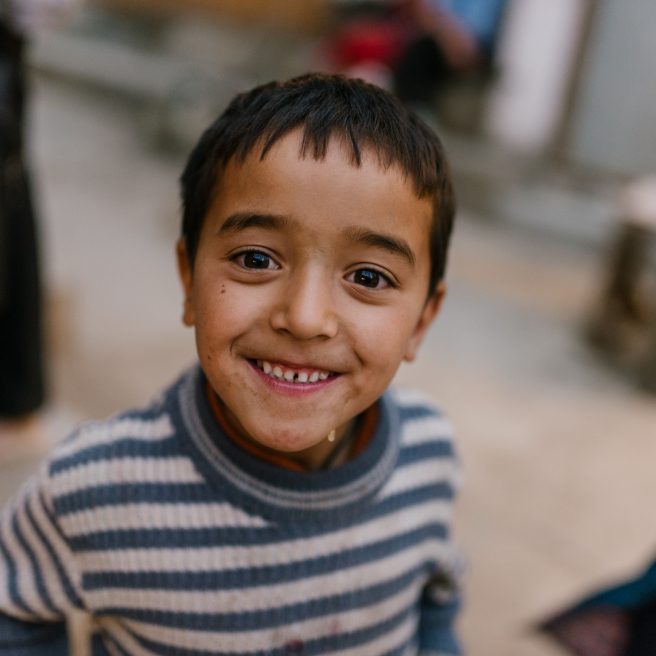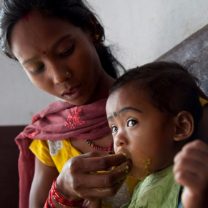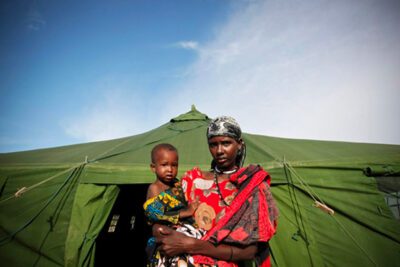We can end hunger in our lifetime.
Hunger affects hundreds of millions of people around the world. It’s one of the world’s most urgent but solvable issues.
Hunger happens when people do not have enough food to eat. There are many misconceptions about why people don’t have access to food, who experiences hunger, and how to end hunger. Here are a few common myths and the facts that dispel them.

Most Common Myths about Hunger
Myth: Hunger is not having enough food.
Fact: The cause of hunger in the world is not a shortage of food but rather access to food – especially nutritious food. Addressing hunger is more than just giving people enough calories.
Myth: Food banks are the best and only way to end hunger.
Fact: Federal nutrition programs provide roughly 10 times as much food assistance as private churches and charities combined. That’s why ending hunger requires the collective efforts of churches, charities, food banks, and federal programs.
Myth: Hunger in the U.S. happens mostly to able-bodied people who refuse to work or help themselves.
Fact: For developed countries like the U.S., hunger doesn’t come from not having enough food available. Instead, those facing poverty often experience “hidden hunger,” meaning even if they are getting enough quantity of food, the quality of food – vitamins and minerals – is lacking.
And many working people struggling with poverty are unable to earn a living wage and don’t have enough money left to buy food at the end of the month. About 13.5 percent of U.S. households — 47.4 million people – including 13.8 million children— struggle to put food on the table.


Why We’re Motivated to End Hunger
The proof is the amazing progress the world has made in just the past two generations. In 1960, 1 in 3 people was hungry. Today, chronic hunger affects 1 in every 11 people – more than 733 million people worldwide.
But hunger is still a huge problem. Picture all the people in the United States and the European Union – almost that many people around the world don’t have enough to eat.
Hunger causes immense suffering and sometimes death – especially among young children. Those who do survive early childhood malnutrition face lifelong health and learning problems.
Adults – workers and parents – can’t be fully productive without enough nutritious food. Countries where many people are hungry have weaker economies. And as long as people are hungry, the world is less secure.
Here in the United States, children rarely die of hunger. However, nearly 14 million children in the U.S. worry about their next meal. Their families may regularly run out of grocery money. Many children who “look healthy” do not get enough nutrients. Their health and ability to learn in school are weakened.
What Would it Take to End Hunger?
The government can’t end hunger by itself, but government commitment is crucial to the progress that is possible. Collectively, the world already grows enough food to feed everyone, and the U.S. government has the power and resources to make a historic impact on hunger. That’s why Bread and our partners work tirelessly to urge our nation’s decision makers to prioritize policies and programs that will end hunger.
Each person who takes action with Bread helps us get closer to that goal.
They will hunger no more, and thirst no more.






